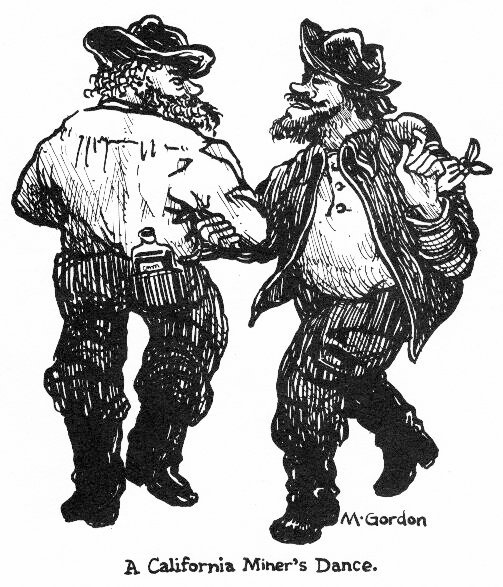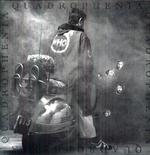Molasses to Rum (1776): why?
#1Molasses to Rum (1776): why?
Posted: 5/3/15 at 12:03pm
Would any posters mind helping me to better understand this song? I feel as though it 'should' have more of an impact on me than it does, but I keep involuntarily getting distracted by wondering about the dramatic logic behind it. In short, it seems to me that after Rutledge sings this song everybody in Congress should be even more convinced to include the anti-slavery mention in the declaration - the opposite of Rutledge's stated intention.
What's Rutledge's motivation in this song? I've read the 1776 libretto, heard the cast recording and seen the movie, however the musical basically taught me everything I 'know' about this part of US history, so I'm relying on the show alone for this, not on historical knowledge. Rutledge wants slavery to continue, so why is he describing it in a way that somewhat acknowledges how awful it is? Is he just trying to cause a commotion to bring the independence debate to a halt? If so, aren't there ways less counterproductive to his pro-slavery stance? And isn't he basically okay with independence if slavery is unaffected anyway? On the other hand, is he trying to say that the north relies economically on slavery to the point that any steps towards outlawing it wouldn't be practical for them either? If so, why isn't he speaking about it in 'civilised' terms and sidestepping the reality? I'm assuming we aren't meant to think he's an utter fool who would make a verbal jab at the north's hypocrisy at the expense of furthering his own interests in Congress regarding slavery or independence. (Or are we?)
jimmycurry01
Broadway Legend Joined: 5/28/05
#2Molasses to Rum (1776): why?
Posted: 5/3/15 at 12:21pm
I never saw it as being ant-slavery. I always felt he was simply saying, "This is the way things are, this is our business, this is how we survive, don't mess with the status quo. " I think it less a social commentary and more an economic commentary.
#2Molasses to Rum (1776): why?
Posted: 5/3/15 at 12:37pm
No, it's telling the high and mighty Northerners that they aren't so innocent in this endeavor as they are often the ones running the ships, thereby profiting from slavery, just in different ways.
Look up: Triangular Trade. (I think that's what it was called.)
#3Molasses to Rum (1776): why?
Posted: 5/3/15 at 12:43pm
I always thought he was pointing out the North's hypocrisy, given how much they benefitted from the institution of slavery as well. He's telling them to get off their high horse.
ETA: dramamama beat me to it.
Updated On: 5/3/15 at 12:43 PM#4Molasses to Rum (1776): why?
Posted: 5/3/15 at 1:23pm
Rutledge is pointing out the hypocrisy of the Northerners who condone slavery yet profit directly from it. He also points out that Jefferson himself owns slaves (at the time of the writing of the Declaration).
The last line sums it up.
"Hail Boston (the North), Hail Charleston (the South) ... who stinketh the most?"
And with that, he walks out of congress and takes the entire South with him.
I played Rutledge a thousand years ago. One of my very favorite roles. It was scary getting inside his head, especially when he gets carried away making his point and reenacts a slave auction in the middle of congress. He goes to a very "dark side," and that was tough going there (as an actor).
And the five-minute dialogue, monologue, and song are a bitch to perform, especially after being (mostly) silent for much of the show. Rutledge is a snake in the grass ... with a poisonous bite.
blocked: logan2, Diamonds3, Hamilton22
#5Molasses to Rum (1776): why?
Posted: 5/3/15 at 1:52pm
For the record, James Barbour delivered my favorite rendition of this song during the most recent Papermill production. Holy mackerel was he good.
Gothampc
Broadway Legend Joined: 5/20/03
#6Molasses to Rum (1776): why?
Posted: 5/3/15 at 2:45pm
"I've read the 1776 libretto, heard the cast recording and seen the movie, however the musical basically taught me everything I 'know' about this part of US history"
Lesson #1: Don't take your history lessons from Broadway musicals. There are several points in this show that are not historically accurate.
KathyNYC2
Broadway Legend Joined: 12/2/10
#7Molasses to Rum (1776): why?
Posted: 5/3/15 at 2:59pm
It is interesting that while Rutleldge did exist - and he was very much against independence and refused to sign the Declaration of Independence...he did ultimately wind up fighting on the American side and became quite an honored war hero.
And no, 1776 is not entirely accurate and many "characters" are composites of a number of real life peoples and some events have been recreated to give the most dramatic representation possible. But it's still probably one of the more realistic theatrical representations of American history ..and does give IMO a pretty good idea of what went on.
Some of the little facts that are incorporated into the musical are entirely true - such as the letters that John and Abigail wrote to each other, the fact that John Adams WAS disliked, New York abstaining from voting and not taking a stand on anything, cancer not stopping one representative from dragging himself to Philadelphia from his deathbed to sign the Declaration and John Adams envisioning fireworks to celebrate our independence.
#8Molasses to Rum (1776): why?
Posted: 5/3/15 at 7:09pm
Thanks for your responses, it's nice to get civil, informative answers on these sorts of things that are probably blindingly obvious to Americans. And point taken regarding learning history from musicals ![]()
It sounds as though my last speculation above was closest to being accurate: Rutledge (the character) is just not the best political strategist, or at least not at this moment in the show. (Hopefully my brain will start letting me accept this as a seamless part of the show sometime soon, and I'll understand the impact of this song more.)
#9Molasses to Rum (1776): why?
Posted: 5/3/15 at 7:28pm
I think you're a little hung up on your own calculation as to political effectiveness. The fact is Routledge WINS his point and slavery is not condemned in the Declaration of Independence (an irony that has haunted this country for 250 years).
If you need motivation for the more gut-wrenching portions of the song, may I suggest what others have implied: Routledge is saying, "Open your eyes to the reality of your own involvement and stop talking in terms of pious ideals."
For subtext, if you need more, one might conclude with Best12 that Routledge enjoys slave auctions a little TOO much and reveals his own sadism in those passages. But remember that YOU have to argue FOR your character (if you are playing the part), and allows the play's comment on Routledge to stand for itself.
#10Molasses to Rum (1776): why?
Posted: 5/3/15 at 11:07pm
"The fact is Routledge WINS his point and slavery is not condemned in the Declaration of Independence (an irony that has haunted this country for 250 years)."
But shouldn't it be due to strong, logical dramatic progression that Rutledge wins his point? I can't agree that since he wins the day in the end, therefore his argument must have been convincing. By that logic, he could have spoken nothing but off-topic, incoherent nonsense, and the fact that the anti-slavery text was subsequently struck from the Declaration would still retrospectively justify his words. We should be able to easily believe in dramatic terms (not just due to historical or even end-of-the-next-scene hindsight) that he would win. Well, in any case I can't begrudge others finding the song to be effective (...or not much, grumble grumble). It is what it is, and it clearly works brilliantly for many people.
#11Molasses to Rum (1776): why?
Posted: 5/3/15 at 11:32pm
I mean -- it is a good political strategy. Rutledge takes out all of the leverage of Adams and Jefferson, who are coming at slavery with the obvious moral arguments. But of course, Jefferson has slaves that he's, you know, going to free -- later. Adams' has the leg up of not owning slaves, and attempts the superiority of being from the North, where slavery was not as proliferate. Except the North was in fact enabling and profiting from the whole trade. He's cutting Adams' entire argument out from under him by highlighting in the most explicit possible terms how deep the hypocrisy of the North is.
#12Molasses to Rum (1776): why?
Posted: 5/4/15 at 3:38am
That's a good point. Of course, in a more rational world, that approach by Rutledge wouldn't get him very far. Say, for example, that murder was not outlawed and I was proposing to outlaw it, arguing that murder is wrong. Then somebody uncovers the inconvenient fact that I've been a serial killer from way back. All that does is prove that I'm a hypocrite; it doesn't mean that murder is any less wrong. My proposed law should still be passed, and theoretically everybody should see that clearly. However, it's also true that in real life politicians' backgrounds and hypocrisies do get in the way of clearheaded discussion, and opponents do strategically bring these things up to successfully sidetrack debates, even if it seems as though everybody should be able to see through the tactic. I'm starting to see how Rutledge emphasising the North's hypocrisy might be more than just an indulgence on his part, and more of a depressing reflection of realpolitik. Thanks, BWW!
#13Molasses to Rum (1776): why?
Posted: 5/4/15 at 6:30am
I always roll my eyes at the "historically accurate" naysayers. First of all, there is no known historical or "true story" drama (musical or non) that is entirely historically accurate.
"1776" is surprisingly accurate. Sherman Edwards, who initiated this musical and wrote the music and lyrics, was a history major, not a music major, at NYU. He was also a history teacher.
Yes, there are consolidated characters, plot points, etc., as there are in ANY drama. You can't cover a subject in 2 hours without doing that. So pointing it out is like saying there is music in a musical. It's kind of obvious that you're right.
Probably the biggest historical inaccuracy is using Martha Jefferson as a "conjugal visit" to inspire Jefferson to write the Declaration. I was always sad to learn that she died so young (at 33), just 6 years after these events in the musical took place.
One of the surprising accuracies in the musical is the relationship between Adams and his wife. Much of what they say and sing is taken directly from their letters, including the saltpeter pleas, and even "Yours, Yours, Yours," where Edwards discovered a letter Adams had written to her filled with a page of his writing the word "Yours" over and over again. I find that fascinating and very romantic, too.
As for Rutledge, he was the youngest member of congress, at 26 and youngest signer of the Declaration of Independence. He had a huge influence on the South's solidarity to have the slavery clause stricken from the Declaration, and after it was removed, he did sign it and fight on America's behalf, becoming a war hero after being imprisoned by the British for almost a year.
blocked: logan2, Diamonds3, Hamilton22
#14Molasses to Rum (1776): why?
Posted: 5/4/15 at 8:06am
I'd just like to say that this thread makes me very happy. It's nice to have a discussion about a show that isn't just gossip and backbiting. I love "1776" and I appreciate all the insight provided by earlier posters. I think I'll listen to it while I work this morning!
#15Molasses to Rum (1776): why?
Posted: 5/4/15 at 8:23am
Fan123, we see something quite similar everyday in current political discourse.
There is a complaint about a social ill. And those bringing up the complaint are typically identified, rightly or wrongly, as coming from a particular group of people (let's call them Group A). There is another group (let's call it Group B) which is widely seen, rightly or wrongly, as being to a great extent responsible for promoting the social ill.
Someone from Group A (an "Adams") speaks up against the social ill and perhaps even proposes curative actions.
Someone from Group B (a "Rutledge") prefers the status quo, things remaining as they are.
"Rutledge" responds by pointing out that 'the other side" is equally blameworthy in promoting the evil at issue.
This accomplishes several objectives.
A) It's a grand distraction from a real discussion about what's just and moral when what's just and moral is seen as being inconvenient and or can only be accomplished at great sacrifice.
B) It gives political cover to Side B and gives political will to all to continue inflicting the evil.
C) It shows the hypocrisy of Side A (the other side) in being at least complicit and often a huge beneficiary - perhaps even an active exploiter - of the social ill.
D) It might throw "Adams" and supporters off his/their game by getting him/them focused on who's most to blame instead of being focused on actually ****ing doing something about the problem,
E) It reminds many in Camp A what side their bread is buttered on and keeps them from supporting Adams (at least in any effective way), and most importantly
F) it adds to a mounting general sense of inertia and helplessness, prime ingredients for the powers that be and the public at large to permit bad things to go on.
Sides A and B in 1776 are, respectively, the North and the South, both of whom made a great deal of money out of slavery.
Today, Sides A and B are typically the two major political parties in the U.S. Which - while they have many important differences (as, of course, did the North and the South) are all too often at least comparably corrupt when it comes to a great many crises of consciousness.
This kind of mental gymnastics keeps pundits juggling, keeps politicians and the public perpetually distracted in the blame game and all to often keeps things exactly the way they are.
If you turn on cable news right now, chances are you'll see someone - either a Republican or a Democrat or an "embedded journalist" - who's mastered Rutledge's playbook.
Cool, cool consideration survives.
#16Molasses to Rum (1776): why?
Posted: 5/4/15 at 1:55pmI had the pleasure of doing this show about 3 years ago. It's an AMAZING piece of theatre and I'm told that it has the longest book scene (running about 30 minutes) without a song. LOVE THIS SHOW
#17Molasses to Rum (1776): why?
Posted: 5/4/15 at 2:43pm
Yes, the scene in congress that happens after "The Lees of Old Virginia" and before "But, Mr. Adams" is actually over 30 min. long without any music or songs.
And it's an exciting scene with so much going on in it. We had to work very hard on the pacing of it, though, since if you drag it along, a "book" scene that long will kill a musical. So keeping the energy up was critical.
But it was really fun to play.
It's almost a play within a musical. And the trick is to make the audience forget that there hasn't been any singing for over half an hour.
That shows you how strong the book is.
blocked: logan2, Diamonds3, Hamilton22
#18Molasses to Rum (1776): why?
Posted: 5/4/15 at 11:23pm
Fan, henrik is right as usual. Put in more concise terms, Routledge's point isn't just that Adams is a hypocrite, but that the New England economy will collapse as quickly as South Carolina's once the "molasses to rum to slaves" economic equation is interrupted.
Without slavery, there will be no market for New England molasses/rum.
(The big cotton that later dominated the Atlantic trade arose after the interior of Georgia, plus Alabama and Mississippi (the states with the best soil for cotton) were taken from the Indians.)








